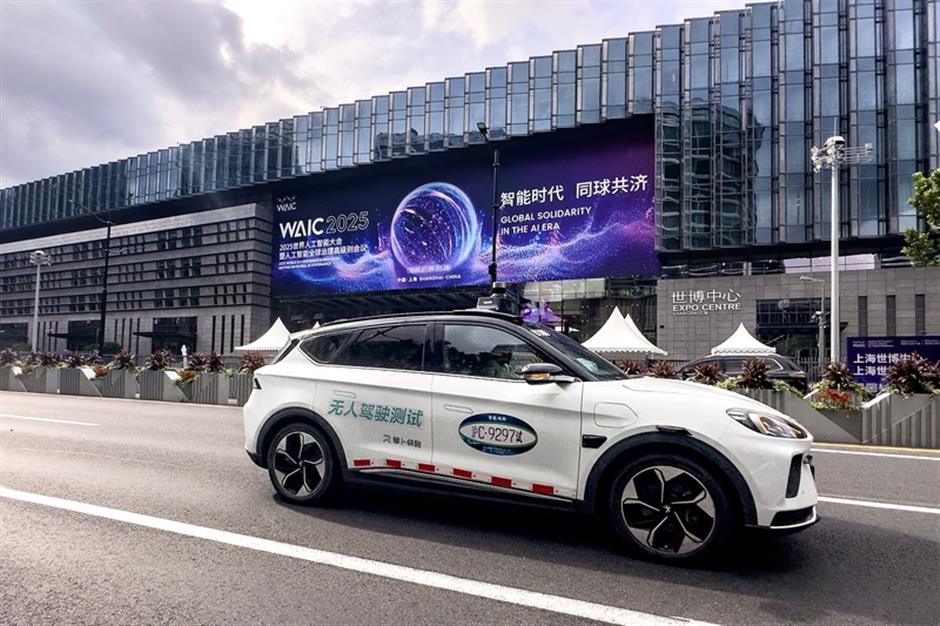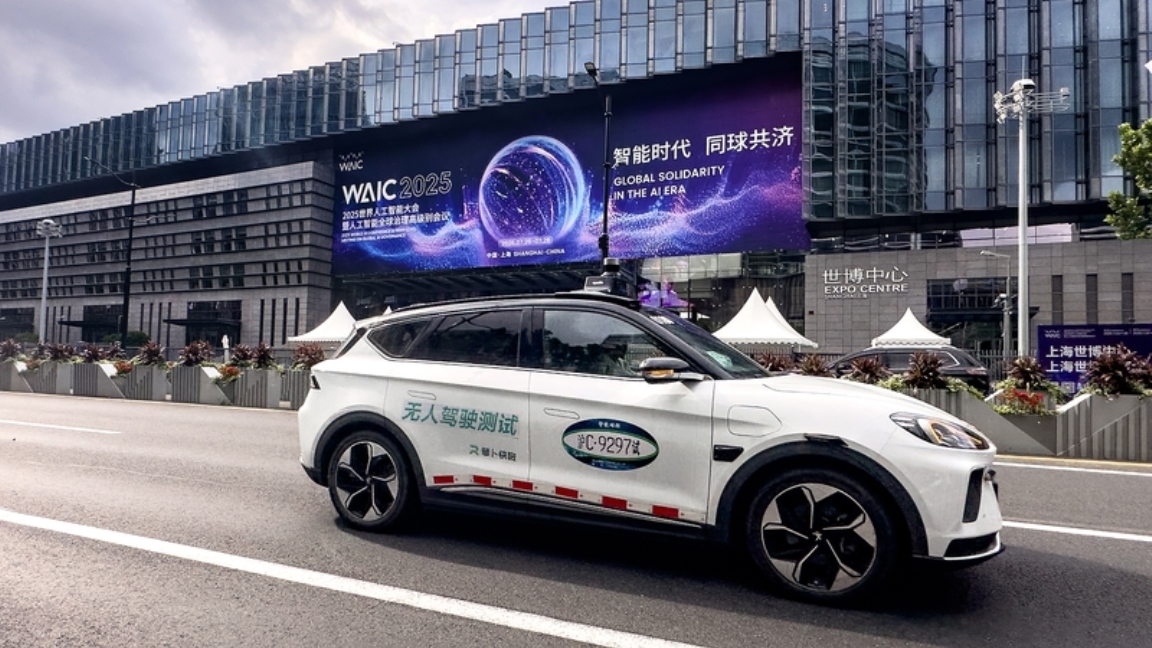
Shanghai unveiled a plan, on Saturday, at the World Artificial Intelligence Conference (WAIC) 2025 to establish a global-leading smart driving zone by 2027.
The zone will cover over 2,000 square kilometers of test areas of more than 5,000 kilometers of roads, benefiting over 600 million passenger rides and 800,000 freight movements, according to Shanghai Municipal Commission of Economic and Informatization.
A significant part of the plan is to introduce large-scale L3-level robotaxi services. L3-level allows a vehicle to handle most driving tasks under specific conditions, but requires the driver to be ready to take over when prompted by the system or in case of a failure.
Currently robotaxi services are available only in limited areas in the suburban Jiading District and Lingang Special Area.
"This initiative aims to not only demonstrate the capabilities of smart driving systems but also to explore innovative mobility service models catering to both individuals and organizations," said Han Dadong, director of the Automobile Industry Department of the commission.
"The exploration of L3 travel scenarios suggests a forward-thinking approach to urban transportation, potentially revolutionizing how people and businesses move."

Robotaxi shuttles are available to the exhibition hall of WAIC 2025. Such services are expected to benefit millions in Shanghai soon.
On Saturday, eight companies received permits to carry out robotaxi services in Shanghai, including both niche smart-driving operators such as Pony.ai and Baidu Apollo, and traditional taxi providers in the city, such as Jinjiang Taxi and Dazhong Taxi. The next soft-operation is expected to carry out in Jinqiao and Huamu areas in Pudong.
According to Han, other commercial scenarios will also be available in the smart-driving zone. Unmanned shuttles will be available in designated areas such as industrial parks and airports, providing more efficient transport within or between hubs. An intelligent BRT (bus rapid transit) system will be built in Fengxian District. And fully unmanned heavy-duty trucks will be operated in Yangshan Port.
The roadmap will also include unmanned vehicles in urban operation, encompassing logistics, inspection, and sanitation services to enhance urban efficiency and reduce operational costs.
"Policies will be made to support the plan, including data management, financial backing and developing insurance products," said Han. "And we hope that smart-driving testing and applications will also be promoted to Yangtze River Delta."

Eight companies received permits for robotaxi services in Shanghai.

